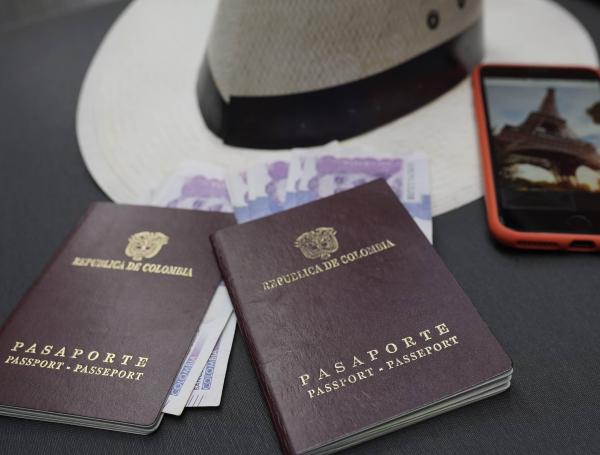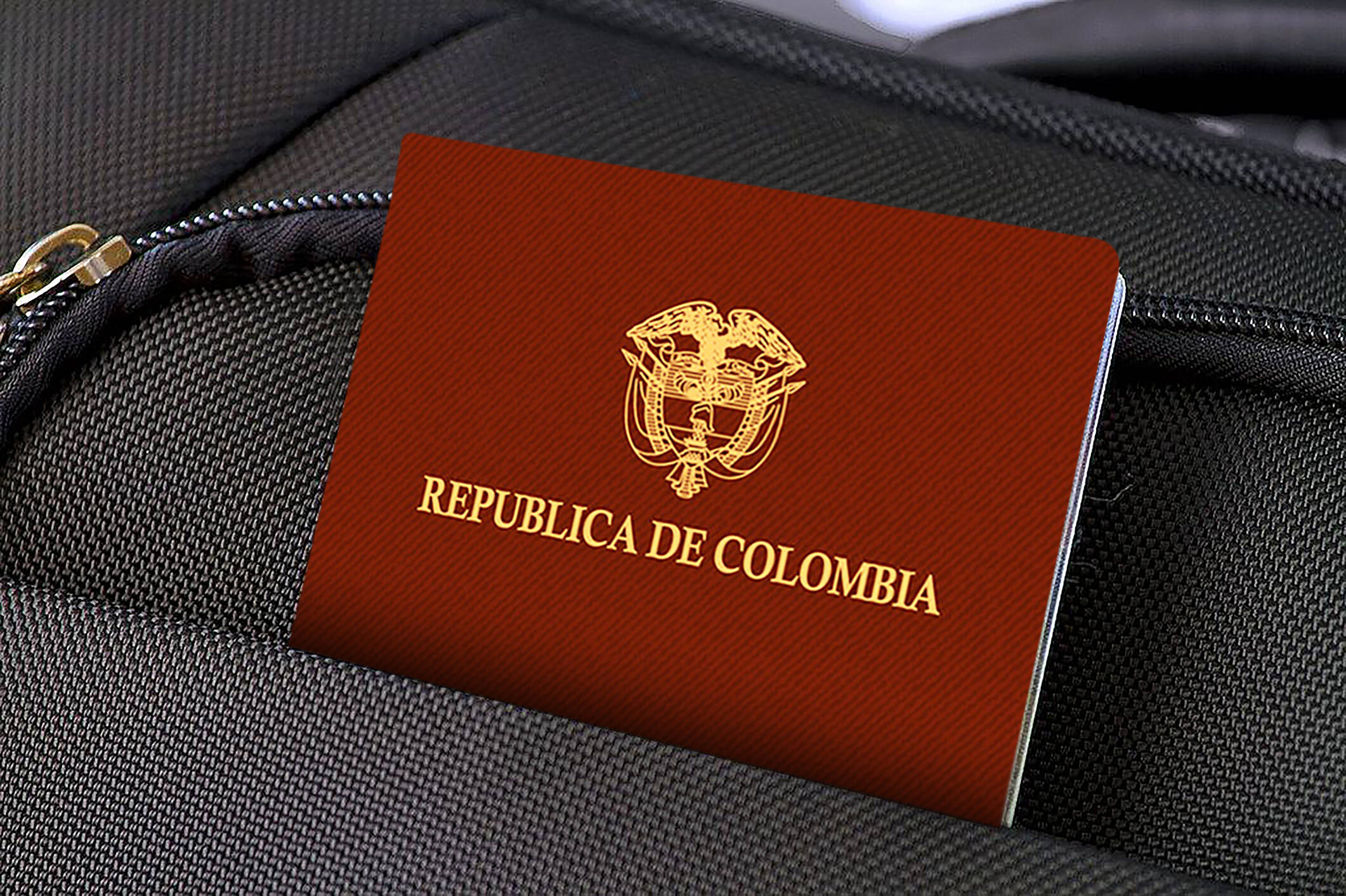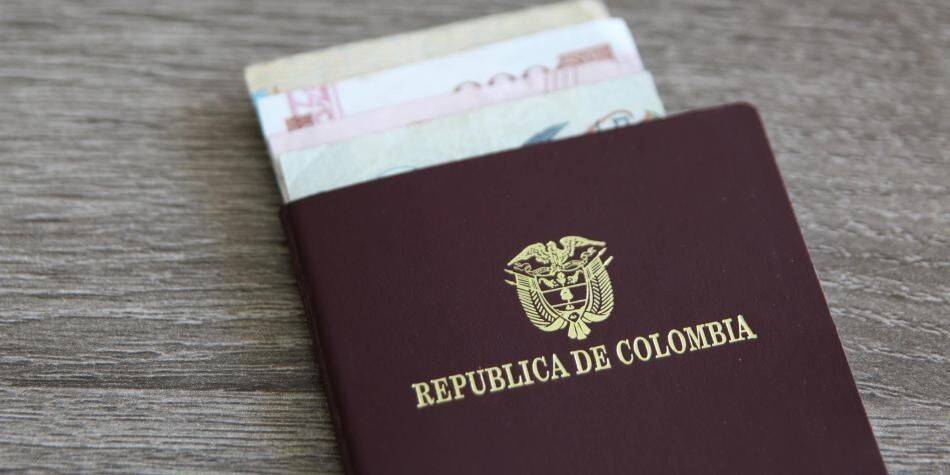What's at stake if Colombia doesn't meet global standards for issuing passports?

Laura Sarabia announced her resignation from the Foreign Ministry via social media. This came after Chief of Staff and Presidential Office Alfredo Saade announced, by order of President Gustavo Petro, that passport printing would begin through the National Printing Office and the Portuguese Mint on September 1 .

The contract with Thomas Greg & Sons expires on August 31. Photo: El Tiempo Archive
A few days ago, Sarabia had declared a new urgent need to extend the contract with Thomas Greg & Sons, the company currently responsible for passport production, for 11 months—which expires on August 31. However, days later, the president ordered Saade to suspend the extension and begin the process with the National Printing House.
Speaking to Blu Radio, Saeede stated that the goal is to "strengthen the National Printing Office" and create sustainable state capacity to produce passports. He also mentioned that "there is no risk of running out of passports."
However, EL TIEMPO's Investigative Unit obtained a document sent by Sarabia to the Attorney General's Office, in which he admits that it is "unfeasible" for the National Printing Office to assume passport issuance starting September 1, 2025 , as planned. According to this document, the process could take up to 35 weeks once the inter-administrative agreement is signed.
The decision has raised concerns among experts, who warn that passport production cannot be compromised , as these documents must meet the technical and security standards defined by the International Civil Aviation Organization (ICAO).

Experts warn that passport production cannot be compromised. Photo: iStock
Mathias Detjen, an expert in security documents, explained to this outlet that ICAO Standard 9303 establishes the technical specifications that passports must meet worldwide.
He added that both government entities and public and private sector experts participate in international meetings where technological advances, security risks, market trends, and strategies to prevent fraud in the production of these documents are analyzed.
This standard, whose eighth edition was published in 2021, establishes, among other requirements:
- A machine-readable zone (MRZ), which allows for rapid verification at immigration controls.
- An electronic chip (ePassport) that stores the holder's personal and biometric data.
- A standardized photograph, as well as mandatory information such as full name, nationality, and issue and expiration dates.
- Durable materials resistant to frequent use, with high security standards to prevent counterfeiting.

The latest edition of ICAO Standard 9303 was published in 2021. Photo: iStock
Colombia implemented the biometric passport with a polycarbonate page in 2010, which was later replaced by the electronic passport that is currently in use.
According to Detjen, despite the fact that the document underwent some technological changes at that time, “it is 100 percent compliant with ICAO Standard 9303.”
And while he acknowledges that some countries have made more progress in passport technology, he emphasizes that the Colombian passport remains modern and secure.
However, he warns that producing passports that do not meet international technical requirements could have serious consequences, such as:
- That countries that do not currently require a life will begin to require one.
- Greater complexity in immigration procedures
- Risk of the bearer being rejected at border controls if the passport is not recognized as valid.
- Risk of the bearer being rejected at border controls if the passport is not recognized as valid.
- Loss of Colombia's membership in ICAO or restrictions imposed by the organization.
In this regard, Julio Londoño Paredes, former foreign minister of the Virgilio Barco government (1986), pointed out that if the new passports do not meet the standards required by international immigration controls, Colombians could be rejected at airports or even not be able to enter certain countries.
Experts say the most important thing is to ensure that the production of these passports meets all ICAO security and internationally recognized standards .
It's worth noting that, according to the latest Passport Index, compiled by Henley & Partners, Colombia is one of the countries that has made the most progress in the ranking of the most powerful documents in recent years.
In 2015, Colombia ranked 75th, but in 2025 it rose to 38th. According to the latest report, Colombia has visa-free access to a total of 133 countries.
Currently, the world's most powerful passports are Singapore, which regained the top spot, with visa-free access to 193 destinations; Japan (190), South Korea (190), Denmark (189) and Finland (189).
This classification is based on data from the International Air Transport Association (IATA) and includes a total of 199 passports and 227 international locations.
ANGIE RODRÍGUEZ - TRAVEL EDITORIAL - @ANGS0614
eltiempo





